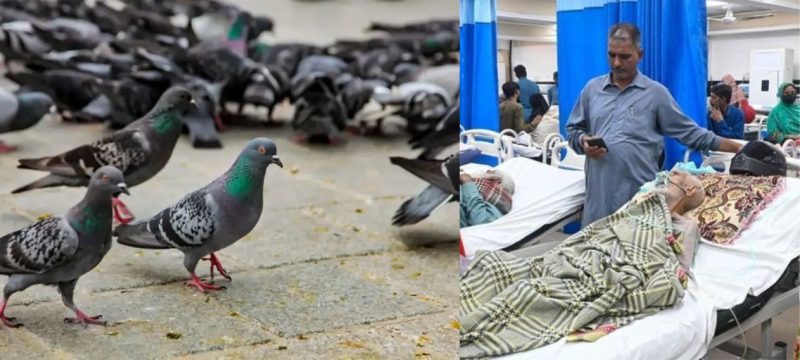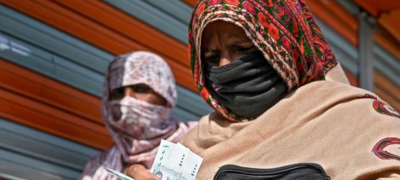A significant rise in cases of Bird Fancier’s Lung (BFL), a rare but potentially severe lung condition, is being reported in Karachi. Health professionals now observe between 15 to 25 new cases weekly—an alarming increase compared to just one or two cases per week a decade ago.
This illness, a type of Hypersensitivity Pneumonitis (HP), is primarily affecting women and elderly individuals. It results from repeated inhalation of fine airborne particles—measuring just 1–3 microns—found in pigeon feathers and dried droppings. These microscopic allergens can easily enter homes through open windows or poorly maintained air conditioners and lodge deep in the lungs, provoking allergic reactions.
Read more: Scientists Warn of H5N1 Bird Flu Threat, Urge Pandemic Preparedness
Early symptoms include a persistent cough, breathlessness, fatigue, and wheezing. If not diagnosed and treated early, the condition can progress to Interstitial Lung Disease (ILD), leading to permanent lung scarring. In severe cases, patients may need long-term oxygen support or even a lung transplant.
Pigeon Habits Under Public Health Lens
Karachi has witnessed a surge in urban pigeon feeding areas, increasing exposure risks for both pigeon handlers and the general public. As pigeons move around feeding zones, they release allergenic particles into the air, which can drift over considerable distances.
Though these feeding traditions are culturally ingrained, the health risks they pose are prompting concern. Many residents are unaware of the exposure occurring inside their own homes or closed environments, making the issue even more concerning.
While early-stage BFL can be managed medically, Pakistan does not yet offer lung transplant services. Patients with advanced disease must travel abroad—often to India, China, or the UAE—for treatment, placing emotional and financial stress on families.
Healthcare experts emphasize that prevention is crucial. They recommend wearing protective masks and gloves when in contact with birds, avoiding dry sweeping in bird cages, and ensuring air conditioners are regularly serviced and equipped with proper filters.
Lack of Recognition Hindering Response
Despite rising cases, Civil Hospital Karachi officials acknowledge that BFL is not yet officially recognized as a distinct illness in the medical classification system, leading to underreporting and a lack of comprehensive data.
Globally, various countries have implemented strict measures to mitigate the spread of BFL and related conditions. For instance, Australia and Switzerland have banned pigeon feeding in urban areas due to health concerns. Similarly, authorities in Makkah removed the popular pigeon feeding zone near the Holy Kaaba during outbreaks of airborne diseases like COVID-19 and MERS.
Public health experts in Pakistan are urging swift action, including nationwide awareness campaigns, stricter regulation of bird feeding zones, and formal integration of BFL into national health monitoring systems for better diagnosis, reporting, and treatment.





